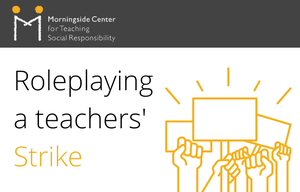
Resource
Teaching Mathematics for Social Justice
Created by
This book is aimed at secondary Maths/numeracy teachers who are interested in addressing issues of social justice in their classrooms and want some ideas for how to go about this. Its premise is that conventional approaches to teaching maths do not adequately address all learners' needs, or the needs of society as a whole. It proposes an alternative approach that encompasses:
- Collaborative problem-solving that promotes discussion and engagement;
- Activities that highlight the relevance and meaningfulness of mathematics;
- Fostering understanding of social, cultural, political and economic situations;
- Mathematical investigations that develop learners’ agency;
- Developing a critical understanding of the nature of mathematics.
The book includes seven projects addressing issues of social justice in the classroom. These cover 'real world' topics such as: inequality; employment and a 'living wage'; fair trade; how votes are cast and counted; and ways in which maths can be used to present information, take action and effect change. Each project includes photocopiable task sheets and supporting teachers' notes. Interspersed between the different project pages are six accessible research articles which explore the theories underlying the teaching ideas. The book arose from a research project involving five teacher researchers all based at London comprehensive schools, and their experiences and reflections are included throughout as mini case studies. All in all, this is a thought-provoking book full of useful ideas.
Topics
Compassionate Values, Equality, Industry and Economy, Politics and Government, Production and Consumption
Age Ranges
KS3: ages 11-14, KS4: ages 14-16
Subjects
Maths / numeracy, Philosophy / P4C / Critical thinking




